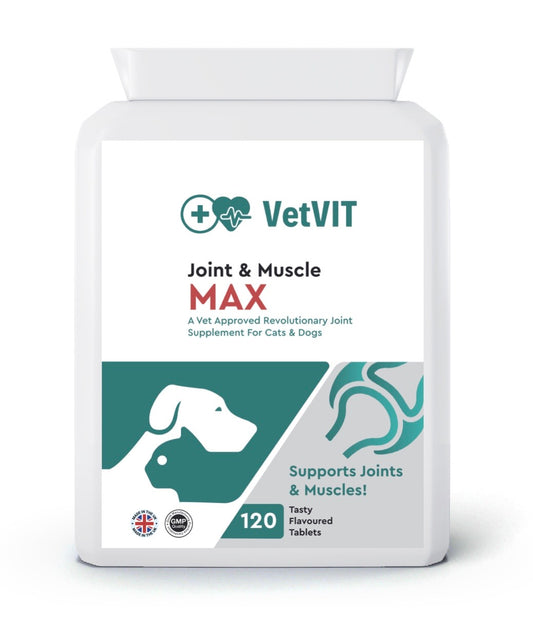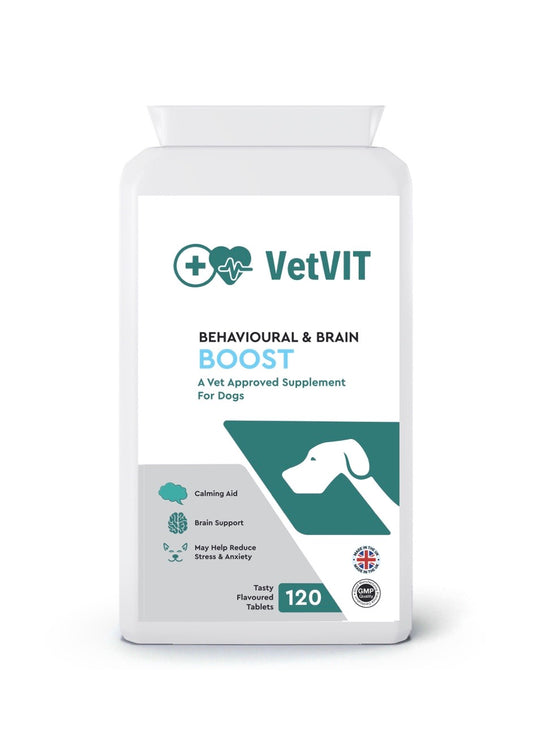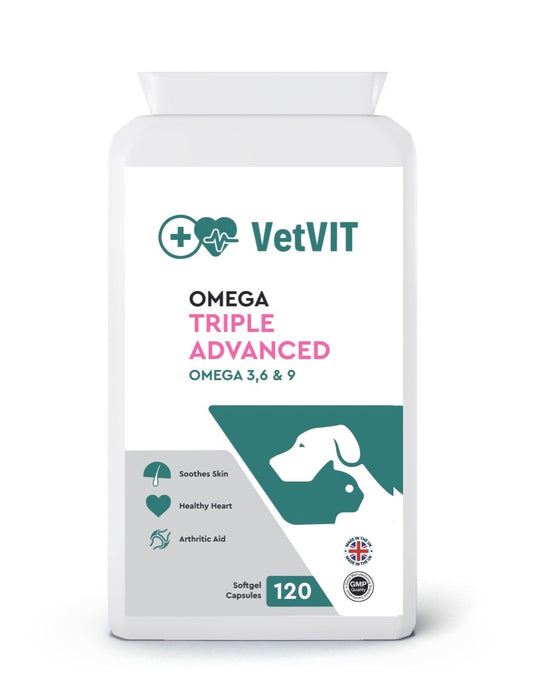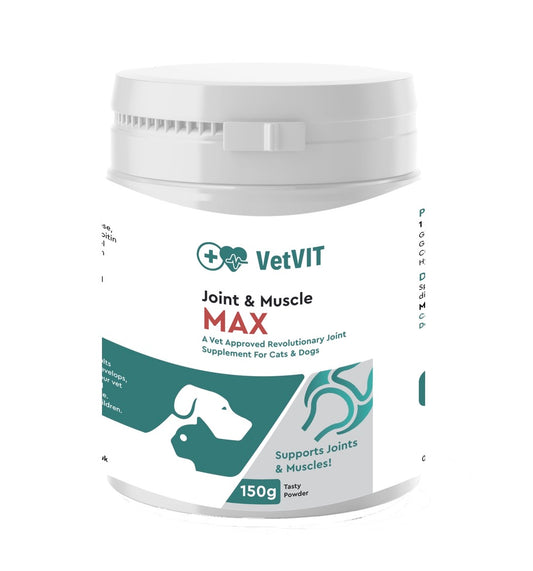One of the most overlooked aspects of canine health is their dental hygiene. Many pet owners don't realise that just like humans, dog's teeth can suffer from tooth decay or gum disease if they are not properly cared for. In this post we'll cover 15 facts and tips on how to keep your dog's teeth clean so they can have a sparkling smile.
1. The Different Parts of a Dogs Teeth!
A dog's dental formula varies depending on breed and size. Generally speaking, adult dogs have 42 teeth in total - 12 incisors, 4 canine teeth , 16 premolars, as well as 10 molars.
It's important to note that a puppy's milk teeth will eventually be replaced by adult ones between three to seven months old.
Understanding your dog’s dental anatomy can help you identify any issues with their oral health early on such as broken or missing teeth which require veterinary attention immediately!
2. The Importance of Clean Teeth for Dogs
The importance of clean teeth for dogs cannot be emphasised enough. Just like humans, dogs are prone to dental problems, which can lead to serious health issues if left untreated.
Gum disease, is one of the most common dental problems in dogs. It starts with the accumulation of plaque and tartar on their teeth and gums, leading to inflammation and infection.
If gum disease is not treated promptly, it can cause tooth loss and spread bacteria throughout your dog's body via their bloodstream. This can put them at risk for developing other health issues.
Removing plaque and cleaning your dog's teeth regularly keeps their mouth healthy, and thus maintaining overall good physical health.
3. How to Clean Dog's Teeth
Cleaning your dog's teeth is essential to maintaining their overall health and well-being.
The best oral dental hygiene tips for any dog is to regularly brush them with pet specific toothpastes, use chew toys for them to play with to help naturally remove plaque, and consider a high quality food that prevents a build up of plaque in the first place. Cheaper foods contain a lot of ingredients that can result in early decay.
4. Brushing Your Dog's Teeth
Firstly, choose a toothbrush designed specifically for dog's teeth. This will have soft bristles that won't hurt or damage your pet's gums making cleaning your dog's teeth easy.
Next, use a specially formulated dog toothpaste. Dentamatic by VetVIT can be used to brush your dog's teeth but also can be used without brushing for those pet's that are difficult.
Start by getting your dog comfortable with the process by letting them sniff and taste the toothpaste.
Once they're comfortable with the taste of the paste, begin brushing using gentle circular motions around each individual tooth.
5. Dental Chews and Treats
Dental chews and treats are an excellent way to supplement your dog's oral hygiene routine. They come in various shapes and sizes, and can be made with different ingredients that promote healthy teeth and gums.
When choosing dental chews or treats for your furry friend, it is essential to look for products that are approved by Vets to ensure safety.
Dental chews work by mechanically scraping away plaque from your dog's teeth while also releasing enzymes that break down bacteria responsible for causing bad breath.
It is important to supervise your dog while they chew on these types of products as they can pose a choking hazard if ingested too quickly or in large pieces. Additionally, overconsumption of dental chews may lead to digestive issues such as diarrhoea.
6. Prevention is the Best Medicine
Prevention is always better than cure, and this applies to your furry friend's teeth too. Regular care and cleaning your dog's teeth can prevent dental problems before they happen.
Remember; it's never too late or too early when it comes to taking care of your dog's teeth health!
7. How often should you brush your dog's teeth?
Keeping your dog's teeth clean is an important part of their overall health, but how often should you be brushing their teeth? The answer depends on a few factors such as age and breed.
However in general brushing your dog's teeth at least 3-4 times per week is recommended to ensure maintaining good oral hygiene.
8. What are some other things you can do to keep your dog's teeth healthy?
Firstly, consider adding raw bones into their diet. Not only do they act as a natural toothbrush on your dog's teeth, but the gnawing also stimulates saliva which helps prevent plaque buildup. Please do be careful with the bones you chose, as they can cause issues if easily broken up. Consult your vet or pet store owner about what ones are best for your dog.
Secondly, feeding your dog crunchy fruits and vegetables like carrots or broccoli can help scrape off tartar from your dog's teeth while providing valuable nutrients.
Ensure that your pet has access to clean water at all times to wash away bacteria and food particles stuck between their teeth. Taking these extra steps along with regular brushing can help improve the overall health of your furry friend!
9. What are the signs that your dog's teeth are not healthy?
The main signs that may indicate there is a problem with your dog's teeth include; bad breath, yellow or brown teeth, excessive drooling, bleeding gums, loss of appetite, & pawing at the face/mouth to alleviate discomfort.
If you notice any of these signs in your dog, take them in for an examination with your veterinarian as soon as possible!
10. Professional dog teeth cleaning.
Professionally cleaning dog's teeth, is an essential part of maintaining a dog's oral health, just like it is for humans. While regular brushing and dental treats can help prevent plaque buildup on your dog's teeth, professional cleaning goes deeper and removes any hardened tartar that has accumulated over time.
It is recommended that dogs undergo professional teeth cleanings at least once per 1-2 years - more often if there are existing dental problems.
If you're unsure if your dog's teeth needs a professional cleaning or have concerns about their oral health in general, make an appointment with your veterinarian.
11. What food is best to keep your dog's teeth healthy?
Feeding your dog the right food is essential for maintaining their overall health, including their dental hygiene. Crunchy kibble can help scrape plaque from your dog’s teeth when compared to soft / wet foods.
Certain vegetables like carrots, celery and green beans can also aid in cleaning dogs' teeth due to their fibrous texture which helps scrub off plaque buildup while being low calorie.
12. Can you use human toothpaste on your dog's teeth?
Using human toothpaste on a dog’s teeth is not recommended. Human toothpaste contains ingredients that can be harmful to dogs when ingested.
Dogs also have different taste buds than humans, so the strong minty flavour of human toothpaste may actually make it more difficult to brush your dog's teeth.
There are specially formulated dog toothpastes available at pet stores or through your veterinarian that are safe for dogs to use. These types of toothpastes come in flavours that appeal more to dogs such as chicken or beef which will make brushing your dog's teeth easier.
13. Dentamatic by VetVIT for your dog's teeth.
Dentamatic by VetVIT is a revolutionary product designed to make dental care for your dog's teeth easier and more effective.
One of the great things about Dentamatic is that it doesn't require any brushing, which can be difficult or uncomfortable for some dogs. Instead, you simply rub it on your dog's teeth and let it work its magic!
Of course, no single product can replace regular veterinary checkups or professional teeth cleanings – but using Dentamatic as part of an overall dental care routine can certainly help keep your dog's teeth looking (and smelling) their best!
14. What to do in the event of a dental emergency with your dog?
Dental emergencies are never a pleasant experience, and the same goes for our furry friends. If you suspect that your dog is experiencing a dental emergency, it's essential to act quickly and take them to the vet as soon as possible.
15. Natural ways to keep your dog's teeth clean.
While there are many products on the market that can help maintain good dental hygiene, some pet owners prefer using natural methods to keep their furry friend's teeth clean.
You can add coconut oil which has antibacterial properties to your dog's food or rub it directly onto your dog's teeth to promote healthy gums and reduce bad breath.
Green tea extract is another natural solution for maintaining good dental hygiene in dogs. You can add a few drops of green tea extract to their water to keep their breath fresh.
16. Conclusion.
Taking care of your dog's teeth is an essential part of their overall health and wellbeing. By regularly cleaning your dog's teeth, providing dental chews and treats, and practicing preventative measures, you can ensure that your furry friend's teeth stay healthy and strong.
Dr. Alan





